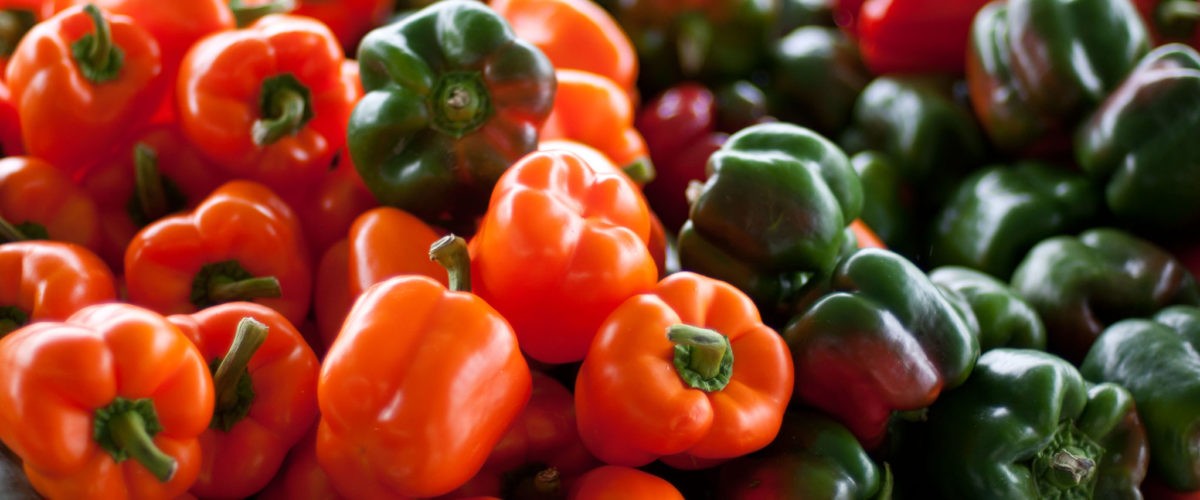Seeking food help from a church-based pantry just didn’t appeal to Sydney Howell, a working single mom in Little Rock, Arkansas.
“I just have this idea about pantries,” said Howell, whose family had volunteered at soup kitchens growing up. “There’s a stigma to it.”
But in 2016, Howell’s daughter came home from second grade with a flyer announcing the launch of an alternative food pantry program to be hosted by a local congregation. It talked about participants having a stake in the process, plus access to a lot of healthy food. Skeptical but curious, she went to the group’s first meeting at Pulaski Heights Baptist Church.
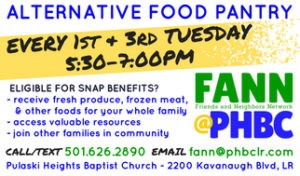
She could hardly believe what she heard from the church volunteers who laid out the program.
“They said this was not a hand-out situation. They said we want you to take charge, make it your own.”
None of that jived with the images she had of people standing in line for food, embarrassed and feeling lesser-than.
“It was a much different environment than I expected,” she said. “It sounded like it could be beneficial, and it sounded like something I would not be ashamed of doing.”
Howell said her observations were proven correct. In the three years since the launch of the Friends and Neighbors Network – or FANN – by the Cooperative Baptist Fellowship congregation, Howell and about 40 others have come not only to be sustained by the program, but to run it.
Howell, who like participants is not a member of the church, is the elected coordinator of the group. The church essentially just hosts it and provides funding and mentorship.
“It’s a well-oiled machine,” Howell said about the FANN at Pulaski Heights Baptist.
Living out church DNA
The congregation itself could be described the same way, and certainly when it comes to following its sense of calling in the community.
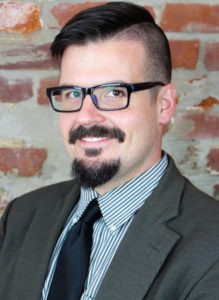
Marty Pike
The FANN, as its members call it, is an expression of Pulaski Heights Baptist’s larger mission to be a resource to its immediate neighbors and the city.
“It’s part of a trajectory we have been on,” said Marty Pike, the minister to children and youth and the current administrator. “It’s part of the original DNA of the church.”
The congregation was founded in 1913, in what was then the town of Pulaski Heights, by a group of women concerned about the spiritual and physical welfare of others, Pike said.
One of its guiding principles in selecting projects to undertake or support is sustainability, Pike said.
“What we do is missions and ministry outside the church,” he said. “We want to use our facilities to make the community a better place.”
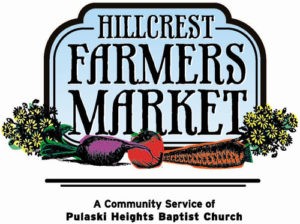
In 2010 it launched the Hillcrest Farmer’s Market. Named for the neighborhood where it’s situated, the market is held Saturday mornings just outside the church and features local vendors selling fresh fruits, vegetables, meats and other items.
It’s also opened its space to community organizations that need meeting places.
Those include a group that helps prison inmates’ transition back into society. Another is a support group for parents of murdered children. The room they’ve been given, Pike said, has become sacred to its members.
“Members of the group bring framed photos of their (deceased) child, so that is a very holy space for them.”
‘Everything that comes in, goes out’
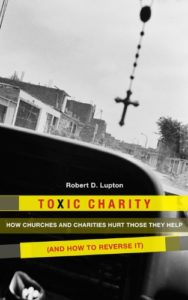
Amazon photo
A major influence in shaping the programs adopted at Pulaksi Heights Baptist has been Robert Lupton’s book Toxic Charity: How the Church Hurts Those They Help and How to Reverse It.
As different members read it over the years, and studying it in groups, they began to push for ministries that, as Lupton suggests, avoid those in need becoming dependent upon institutions with resources.
It was one of the guiding principles in the establishment of the FANN.
And so was church member Harriett Phillips, who has served Arkansas governors in roles including the coordination of hunger relief programs.
“Harriett is a force of nature,” Pike said.
One of her concerns was the level of food insecurity in the neighborhoods around the church. While there were affluent areas, there also are apartment complexes and other sections where people struggle in poverty, he said.
“There are a number of kids in need of help getting adequate food,” he added.
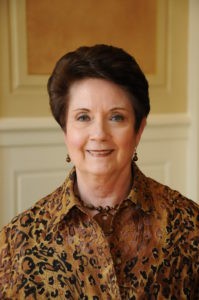
Harriett Phillips
Because Lupton promotes the FANN concept in his book, it was seen as a way Pulaski Heights Baptist could address the need for more and better food for its neighbors.
“It was sustainable for us and followed the DNA of our church in seeking a connection” with local residents, he said.
The sustainability comes in part from the practicality of the program, Phillips said.
“One of the chief things I like about the FANN, from a sponsor perspective, is that we don’t have to store any food,” she said. “Everything that comes in, goes out.”
Likewise, the church doesn’t have to be in charge and doesn’t need to supply a host of volunteers, she said.
“They have really taken ownership.”
‘There is skin in the game’
The FANN model was developed by Food Security for America, which trains non-profit and religious organizations to operate food security groups. FANNs are in operation around Little Rock and the country.
Food for the Pulaski Heights Baptist FANN is obtained from the Arkansas Food Bank, which is a part of Feeding America. Foods range from proteins, such as beef and chicken, to fresh produce. Each family takes home at least 10 pounds of fresh produce alone at each gathering.
“The main thing is produce,” said Mande Corbett, one of the church members who helped launch the local FANN. “Most pantries don’t do produce because they do storage.”
Funds needed to purchase food and for other expenses are covered by the congregation’s ongoing weekly farmer’s market.

Mande Corbett
During the their twice-monthly meetings, devotionals are held and concerns and recipes are shared. Speakers are invited for inspiration. Quarterly business meetings also are held.
FANN members have designated tasks during the get-togethers. These include watching over children during deliveries and distribution, unloading the truck, bringing in boxes and cleanup. Others bring snacks and some oversee sign in.
There is a $5 fee to join, and it costs $5 to attend each meeting when food is distributed.
“There is skin in the game,” Corbett said.
The fees collected do not pay for food but are used to support charitable causes. The process inspires a sense of civic and humanitarian duty and empowerment in the FANN members.
“The coolest thing is that benevolence begets benevolence,” Corbett said. “They come for food and they get to vote on how to be charitable to others.”
The members vote on every aspect of the group’s activities, from which charities to support, guest speakers, business decisions and more.
That self-governing aspect contributes to the principle of the organization, which is prevent top-down, transactional relationships between food donors and those in need. The results can be seen in the enthusiasm displayed by FANN members in every task.
“They have just taken this program and run with it,” Phillips said. “They have done a great job of organizing and keeping things going.”


